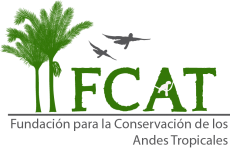Spring 2019
Spring has come and gone, and the heat is here to stay in New Orleans. All members of the lab have been busy and productive this semester!
First things first – congratulations to newly minted Ph.D. Candidates John Jones and Sarah Khalil for successfully defending their PhD thesis prospectus’ and to Lauren Hitt, Kyu Min Huh, and Shayna Ross for successfully defending their undergraduate Honors Theses! Good job everyone!
The plus one master’s students have been equally successful in finishing up their programs and preparing to graduate. Congratulations to Rachel Cook, Akhila Gopal, Jiawen Liu, and A.J. Pate.
Further congratulations to our graduating seniors – Lauren Hitt, Kyu Min Huh, and Shayna Ross.
We also welcome undergraduates Margaux Armfield, Sarah Lueder, and Erin Sheehy to the lab, all of whom will be conducting Honors Theses, with Sarah Lueder traveling to Ecuador this summer to collect data for her Honors Thesis.
The PhD students have survived another year and are preparing for the next steps in their academic careers.
Zoe Diaz-Martin attended a landscape genomics course at UNAM, Morelia, Mexico in January. This spring she was awarded the Society for Integrative and Comparative Biology Grants in Aid of Research (SICB GIAR) as well as the International Palm Society’s Endowment Fund Award. This summer she will be co-instructing two summer courses: Conservation Genetics for the Tulane Summer Scholars Program and Tropical Biology and Conservation based at the new FCAT reserve in Ecuador. In addition to teaching, Zoe will be presenting her work at the Evolution Conference in June.
John Jones defended and passed her prospectus and is now officially a Ph.D. candidate! He also received an Endeavour Leadership Program Research Award from the Australian Department of Education. This fellowship sponsors John to spend the Fall 2019 semester in Australia, conducting behavioral endocrinology field research on red-backed fairywrens. He left us for Papua New Guinea in early May for the final field season of his dissertation research after successfully defending his prospectus. He, along with lab alums Erik Enbody and Jenny Hazlehurst, published a paper in Emu describing the social structure and life history of white-shouldered fairywrens and gave a talk at the Society of Integrative and Comparative Biology annual meeting in January. We will all miss him while he is away!
Sarah Khalil also defended and passed her prospectus and is now officially a Ph.D. candidate! In January, she presented her work on the relationship between testosterone, gene expression, and carotenoid plumage in red-backed fairywrens at the Society of Integrative and Comparative Biology (SICB) where she was a finalist for the Division of Comparative Endocrinology Best Student Presentation Awards. This spring semester, she is working in the lab of committee member Dr. Irby Lovette at the Cornell Lab of Ornithology on a whole-genome resequencing project investigating the genetic basis for red coloration in hybrid fairywrens. She is excited to present this work at the American Ornithological Society this June in Anchorage, Alaska where she has been invited to speak at the symposium “Lessons from avian hybrid zones and the maintenance of species boundaries.”
Kaushik Narasimhan is gearing up for a long field season this summer, obtaining three grants for himself and his research assistant, Lewis Greenstein. He will test if the survival advantage of rare genotypes occurs across multiple palm species using a common guard experiment and the relationship of plant immune resistance (R) genes in promoting this survival advantage. Moreover, he will also assist with undergraduate projects in the new FCAT reserve over the summer. Kaushik is wrapping the frugivory camera trapping study, yielding a large and “fruitful” dataset (pun intended). Also, the videos from the camera trap have revealed at least one species that was not previously recorded in Ecuador, and Kaushik is working with a collaborator to produce a communication detailing a range extension for Mustela frenata in NW Ecuador.
Annelise Blanchette attended the Society of Integrative and Comparative Biology annual meeting in January and spent this semester refining her methods and getting ready for her first field season in New Orleans. She will spend the summer monitoring mockingbird nests and piloting behavioral studies on adults. Further, she will work with Akhila Gopal to study the Anolis lizard and quantify the amount of lead in some plants commonly found in the city. Annelise also assisted Lauren Hitt with her Honors Thesis and is very excited to work through all the data.
Mike Ellis assisted Kyu Min Huh with her hummingbird research for her honors thesis and collaborated with Rachel Cook and others on a camera trap study of diversity from Ecuador. He also spent a month in Ecuador training new field personnel for TMA and has begun integrating data from TMA and FCAT mist netting efforts. This summer he returns to Ecuador to identify new research sites and expand pilot data collection for his PhD thesis research. He’ll also be working with tropical ecology classes from Texas State, Tulane, and la Universidad de Especialidades Espíritu Santo while deepening collaboration with the FCAT bird banding team.
And finally, the advisor who makes this all possible for us has been incredibly busy this semester.
Jordan Karubian traveled to Ecuador assist with construction of a field station at FCAT’s new reserve in northwest Ecuador. He has been preparing grant proposals for expanded research and conservation work, and is looking forward to returning to Ecuador later this summer, where he will co-lead a tropical field biology course for Tulane undergraduates (with Zoe Diaz Martin and Renata Ribeiro).
Read More


